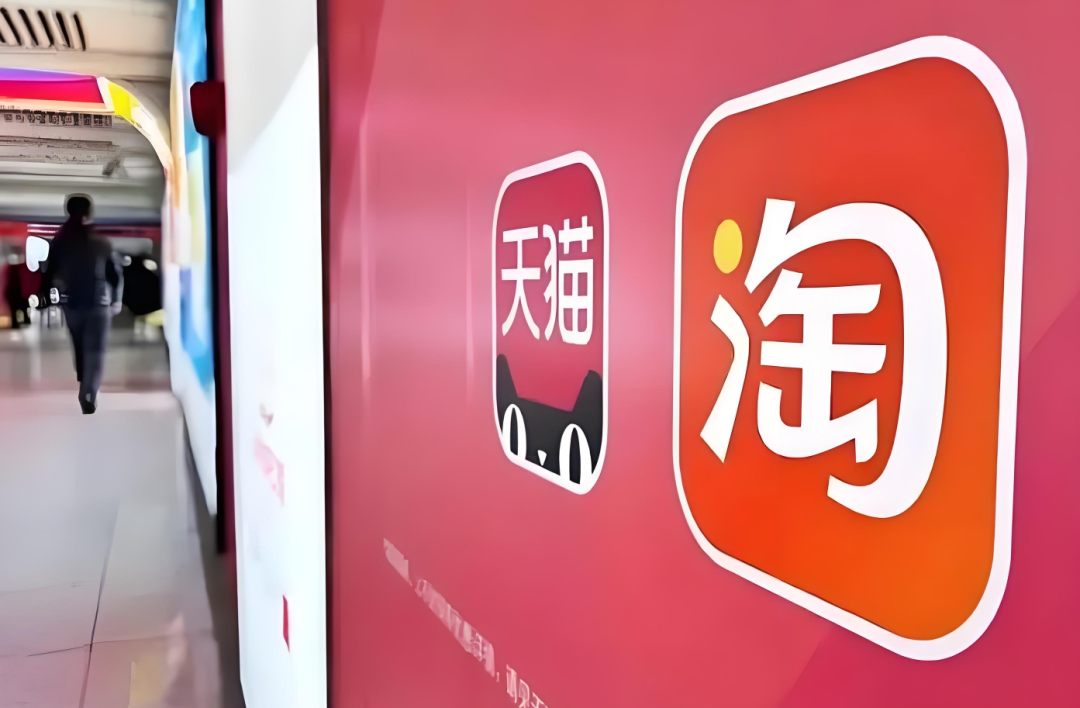"Taobao and Tmall have increased their fees, and Alibaba has reached a critical juncture
![]() 08/13 2024
08/13 2024
![]() 567
567

"LAIKA"
"2024/08/12"
"Is the service fee for merchants the antidote to profitability?"
"Facing operational pressures, Alibaba has chosen the most direct 'price weapon'."

"Recently, Alibaba has initiated a new policy adjustment focused on across-the-board price increases, encompassing businesses such as Taobao, Xianyu, Alibaba Cloud, and AutoNavi Maps, characterized by broad scope and significant adjustments."
"According to media reports, in e-commerce, Taobao and Tmall's policy adjustments include significant changes to store traffic rules, modifications to the 'refund only' policy, and the introduction of a 0.6% 'basic software service fee' on transaction values for all merchants on Taobao and Tmall. Xianyu also plans to charge a basic software service fee to sellers (calculated at 0.6% of the actual transaction value per order, capped at RMB 60). Meanwhile, starting from August 15th, Alibaba Cloud will increase prices for its number authentication products (including one-click login and local number verification). Earlier, on August 5th, AutoNavi Maps' open platform API or SDK was no longer fully free, and two commercial service plans, Basic and Advanced, were offered to enterprise developers, priced at RMB 50,000 and RMB 100,000 per year, respectively."
"In Alibaba's public statements, such adjustments are said to be based on industry norms and aimed at further optimizing the merchant ecosystem. However, this approach of 'raising fees' also highlights Alibaba's urgency for profit growth. From the 'low-price strategy' of a year ago to the introduction of service fees for all merchants, Taobao Group aims to activate GMV/traffic growth, drive merchant budgets and operational focus back to the platform, and thereby enhance the platform's commercial monetization."
"In the short term, Alibaba's e-commerce business may be able to generate more potential revenue sources from merchant transactions, but in the long run, it will depend on the stability of the platform's relationship with merchants and how to maintain healthy growth in platform user traffic and improve the efficiency of platform commercialization tools."
"01","Taobao Price Increase","A Deliberate Strategy of 'One Step Back, Three Steps Forward'"
"The e-commerce business, primarily through the introduction of 'basic software service fees,' has garnered the most attention regarding Alibaba's price increases."
"According to Alibaba's adjustments to merchant operating rules, starting from September 1st this year, all merchants on Taobao and Tmall will be charged a 'basic software service fee' of 0.6% on transaction values, while the annual fees of RMB 30,000 and RMB 60,000 previously charged exclusively to Tmall merchants will be abolished, and any prepaid 2024 annual fees will be refunded. For Taobao sellers with annual sales between RMB 120,000 and RMB 1 million, Taobao will issue Alimama coupons to sellers, with a face value equivalent to 50% of the basic software service fees paid to Taobao by sellers in 2024."
"Regarding this new regulation, some merchants have directly highlighted the key points: Those who cannot even achieve annual sales of RMB 120,000, and are not profitable, will be exempted from the basic software service fee. For those with annual sales between RMB 120,000 and RMB 1 million, they will pay half the fee, which will be refunded in the form of Alimama coupons. For those with annual sales exceeding RMB 1 million, the 0.6% fee is non-negotiable and was originally intended to be paid, albeit previously subsidized by the platform."
"The price increase by Taobao and Tmall, on the surface, abolishes annual merchant fees but is essentially a deliberate strategy of 'one step back, three steps forward,' manifested in three main aspects:"
"Firstly, the previously fixed annual fees have been transformed into dynamic basic service fees. Previously, different category merchants on Tmall paid annual fees ranging from RMB 30,000 to RMB 60,000, and most category merchants could enjoy a full annual fee refund upon reaching a sales threshold 10-20 times the annual fee, with a half refund for reaching half the sales threshold. However, now, a basic software service fee of 0.6% will be charged on the confirmed transaction value of each order. In other words, the more orders merchants complete, the more service fees Taobao and Tmall will collect, with no upper limit. Some media estimates suggest that based on 2020 GMV, this 0.6% technology service fee could generate an additional RMB 24.8 billion in revenue for Taobao and Tmall."
"Secondly, the scope of fee collection has been expanded to include all Taobao and Tmall merchants. Previously, Taobao C-store merchants did not need to pay platform fees based on store order transaction values, but now all Taobao merchants face an additional expense of the 0.6% basic software service fee, which will directly translate into revenue for Taobao and Tmall."
"Thirdly, there is industry alignment in business models. Before this adjustment, other mainstream domestic e-commerce platforms, including Tmall, charged both advertising fees from sellers and transaction commissions based on seller transaction values, while Taobao only charged advertising fees. After this adjustment, Taobao and Tmall will further align with the industry by earning both advertising fees and transaction commissions. This means that while it may attract criticism, Taobao and Tmall may have limited options left in their arsenal to boost revenue growth."
"02","Change of Course","From 'All-in' on Low Prices to Refocusing on Merchants"
"It is well-known that since 2020, Alibaba has failed to fully capitalize on the vast domestic demand opportunities in the lower-tier markets, and at the same time, it has experienced the rapid rise of short video platforms, which have reshaped the overall internet business traffic landscape. The growth of Taobao and Tmall's GMV has slowed under the combined influence of internal and external factors. At that time, Alibaba was eager to confront the challenge and seek new growth points, successively launching Taobao Lite and community group-buying service Taocaicai, and increasing investment in Taobao Live, but the overall results were limited and did not significantly contribute to the group's GMV and revenue growth. Subsequently, Alibaba underwent a redefinition of its core strategy and a series of organizational structure and management adjustments to fully address industry competition."
"Guided by the strategy of enhancing user experience, in February last year, Taobao and Tmall set price competitiveness as one of its five strategic goals, hoping to use absolute low prices to withstand the fierce offensive of Pinduoduo and secure a second growth opportunity. At the end of 2023, Taobao introduced 'fast return and refund' or 'refund' support, followed by the Xinjiang free shipping program, 88VIP unlimited free returns, website upgrades, and the relaunch of the 'Taobao Forum.' The focus was on improving the shopping experience for consumers and driving performance growth through increased consumer shopping frequency."

"Over the past year, Taobao Group's 'All-in' low-price strategy has indeed led to double-digit year-on-year growth in GMV and order volume, but operating performance has not achieved high growth rates, and the two growth rates are disproportionate. For example, in fiscal year 2024, Taobao Group's revenue was RMB 434.893 billion, an increase of 5% year-on-year. In the fourth fiscal quarter, revenue was RMB 93.216 billion, with a year-on-year growth rate of only 4%. Furthermore, due to the limited profit margins of low-priced goods, Alibaba's net profit continues to narrow. From fiscal year 2021 to fiscal year 2024, Alibaba's non-GAAP net income attributable to shareholders fell from RMB 150.578 billion to RMB 80.009 billion, a near-halving. In the fourth fiscal quarter of fiscal year 2024, Alibaba's adjusted net profit was only RMB 24.42 billion, a year-on-year decrease of 11%."
"This financial performance has also contributed to the continued decline and shrinkage of Alibaba's share price. In the U.S. stock market, after reaching a high of USD 316 per share in October 2020, Alibaba's share price has since declined, closing at USD 79.99 per share on August 9, 2024, which is even lower than its IPO price."
"A secondary market analyst pointed out that Alibaba's growth in the previous quarter was primarily driven by significant investments on the platform side. While low prices are beneficial to order volume and user numbers, they are detrimental to revenue and profits in the short to medium term, making this path less sustainable and difficult to achieve a win-win situation for both GMV growth and profits."
"As a result, earlier this year, Taobao and Tmall proactively exited the 'low-price war,' de-emphasizing the low-price strategy and setting sales and average spending as the most important goals, no longer pursuing high order volumes driven by low prices. During the earnings call in May, Alibaba executives also indicated that they would further enhance monetization products, which would be gradually introduced, such as increasing penetration among merchants, especially small and medium-sized businesses, and boosting their spending and investment in monetization products."
"From the perspective of the e-commerce industry, the internal competition centered on low prices seems to have come to an end, with a shift away from simply pursuing low prices. Facing intense competition, Taobao and Tmall indeed need self-transformation, but directly shifting to a price competitiveness strategy may not necessarily yield results. Against this backdrop, Taobao and Tmall have already begun promoting their new business approach, with a clear understanding that when merchants thrive, the platform benefits. While helping merchants improve operational efficiency, Taobao and Tmall are also attempting to optimize their revenue-generating capabilities through commercialization products."
"However, considering the intensive adjustments to merchant policies, it is evident that Taobao and Tmall's primary objective is to improve the efficiency of traffic promotion expenses, which account for a significant portion of merchant costs. While the new policy appears to waive annual fees for merchants, the operating costs for many merchants have not actually decreased. For many Taobao and Tmall merchants, there are 'no more free traffic,' and small and medium-sized merchants must invest more to maintain the same conversion rate. According to China Business Network, some sellers initially experimenting with 'site-wide promotion' need to set their advertising budget at approximately 1.5 times the historical total budget for the product to ensure stable ROI."
"It can be said that as merchants struggle with operational challenges and platform traffic reaches its ceiling, whether it's opening up traffic or emphasizing paid traffic, essentially, it's a reuse of the existing market. Therefore, when traffic is insufficient to allocate to merchants at different levels, the platform selects merchants that can continue to contribute value by assessing their traffic utilization. During this period, larger-scale and more capable merchants who can increase commercial investments may benefit from the policy, but for many small and medium-sized merchants with limited GMV and service capabilities, they may ultimately choose to vote with their feet."
"Objectively speaking, the key variables and determinants of whether Taobao and Tmall's new policy can be successfully implemented in the future and ultimately form a positive business cycle lie in how merchants perceive: firstly, an improving trend in platform traffic growth, implying expanded incremental sales opportunities; secondly, an improvement in the return on investment for the platform's commercial advertising tools. However, the current situation is unclear and requires time to validate."
"03","More Terrifying Than Reality, Anxiety About the Future"
"If we delve deeper, in addition to the content of the new pricing policy, the timing of Alibaba's announcement is also noteworthy: Firstly, choosing to announce it before the release of the new fiscal quarter's financial results is obviously intended to pave the way for future revenue growth and the dual listing in Hong Kong, thereby boosting market confidence. Secondly, announcing it after 618 and before Singles' Day, leveraging the current consumer spending lull, is a way to gauge merchant acceptance of the new policy without significantly impacting annual GMV fluctuations."
"As Bloomberg analysts pointed out, Alibaba's adjusted EBITA in the first fiscal quarter is likely to be lower than the same period last year for the second consecutive quarter. This is due to a threefold increase in capital expenditures in the previous quarter, and this trend is likely to continue in fiscal year 2025 as Alibaba accelerates the expansion of cloud services and logistics infrastructure. Additionally, the overall weak business sentiment may limit the revenue growth of Taobao and cloud services, and as Alibaba seeks growth in overseas e-commerce operations, its marketing costs as a percentage of revenue in fiscal year 2025 may exceed the previous year's level."
"Over the past three years, intense competition in the e-commerce industry has significantly suppressed the valuation of Alibaba's e-commerce business, and a rebound in profitability is a crucial factor supporting the company's share price and valuation. There is an urgent need to enhance commercialization efficiency to bolster platform profits."
"For Taobao and Tmall, Alibaba needs to demonstrate that its core e-commerce business is returning to a growth trajectory to gain long-term market confidence. However, essentially, Taobao Group's business model is based on monetizing platform traffic, and future growth will primarily depend on changes in traffic value (high-value active users) and monetization efficiency (take rate). The positioning of the Taobao ecosystem platform has gradually shifted to an 'operation field,' primarily serving brand merchants, with a traffic distribution logic of 'high transaction values and high unit prices lead to substantial profits → merchants have stronger paying capabilities to purchase more traffic → traffic tilt further boosts transaction values,' focusing on enhancing traffic value to increase commercial monetization."
"This platform advertising strategy, deeply tied to traffic operations, can effectively strengthen the advantages of top brands in acquiring traffic and enhance monetization efficiency. However, it also raises the overall operational threshold of the platform, causing many small and medium-sized merchants to reduce their enthusiasm for purchasing traffic due to limited paying capabilities, thereby affecting the vitality and diversity of the entire ecosystem. Furthermore, the declining gross margin trend among merchants in recent years may also limit the ceiling for merchant marketing expense expansion."
"For Alibaba Group as a whole, in addition to Taobao and Tmall, adjustments have also been made across the cloud intelligence group, local life, and other businesses. By directly increasing prices, each segment seeks direct incremental space and enhances its self-sustaining capabilities. For these businesses, only by achieving profitability or through other capitalization methods can they realize asset values, alleviate market concerns about the group's profit level, and thereby drive the repair of the overall valuation."
"Facing the future, Alibaba must not only defend its core e-commerce business, withstand various pressures to maintain positive growth, but also strategically invest in key businesses while sacrificing short-term interests for growth, enabling synergistic development across all businesses. This complex situation requires Alibaba to better dissect and seek a dynamic balance and strategic upgrade for long-term development."
- END -







